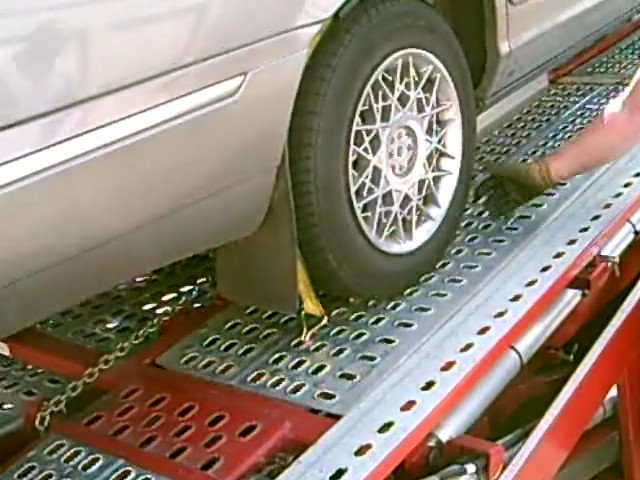Bloomberg.com: Canada: "Truck output will end at plants in Oshawa, Ontario; Moraine, Ohio; Janesville, Wisconsin; and Toluca, Mexico. The factories produce models such as the Chevrolet Silverado and GMC Sierra large pickups, TrailBlazer and Envoy SUVs and medium-duty trucks.
The plants will close in 2009 and 2010 and probably won't reopen, Wagoner said. They employ a total of 7,590 hourly and 676 salaried employees, the company said."
This is another sign of the times, just like the Suburbans you see on the side of the road with "For Sale" signs in the window.
The North American auto business is slowly but surely relocating to the southeastern United States. As GM and Ford shutter assembly plants in the midwest, and as foreign automakers break ground in Alabama, Mississippi and Georgia, auto manufacturing jobs, plus the machining jobs of suppliers, plus the jobs at the other end of the factory-- the auto transport work-- is slowly but surely moving to the Southeast where the land is plentiful and the unions are scarce.
If you read the article I've linked to, you will see that the head of the union in the near the Canadian plant slated for closure said that the union would fight GM on this.
Make no mistake: the current downturn in the business cycle is masking a broader structural shift in auto manufacturing, and by extension, auto transport. The old American behemoths, GM, Ford and Chrysler, can no longer compete effectively. They are hamstrung by their obligations to the Union-- paying insurance costs for widows who are living longer and longer and requiring more and more expensive medical care.
Even a financial genius would have had a hard time playing the hand that has been dealt to the big American automakers... but they have certainly been playing at a sub-genius level. Consider the fact that Ford virtually ceded the passenger car market to Toyota and Honda in the last decade. (Remember back in the nineties, when the Ford Taurus was the #1 selling car in America?) They basically just put granny on the iceberg in their rush to produce more F-150s, Explorers and Expeditions.
Well, you reap what you sow. As the world's emerging economies compete with the U.S. for commodities like oil and steel, don't expect fuel prices to go back down just because Americans start buying more fuel efficient cars from Kia, Hyundai, Toyota and Hyundai (and, occasionally, Ford, GM and Chrysler).
I think we can expect future business cycles to depart from the usual boom-bust cycle of past decades. It seems we have entered a period where energy prices will consume a much larger percentage of everyone's budget. Couple this with the rising US budget deficits and the rising costs of Medicare and Social Security as the baby boomers start to retire, and it is not hard to imagine a future in which the majority of car owners keep their vehicles for 10 years or more, because they're spending all their money on adult day care for their parents, $12 per gallon fuel and a 60% combined tax on their income.
The car haulers who stay busy will be the ones hauling tiny little electrics and hybrids made by Kia, Hyundai, Toyota, Honda et. al. in the southeastern U.S.
Tuesday, June 03, 2008
Subscribe to:
Post Comments (Atom)


No comments:
Post a Comment